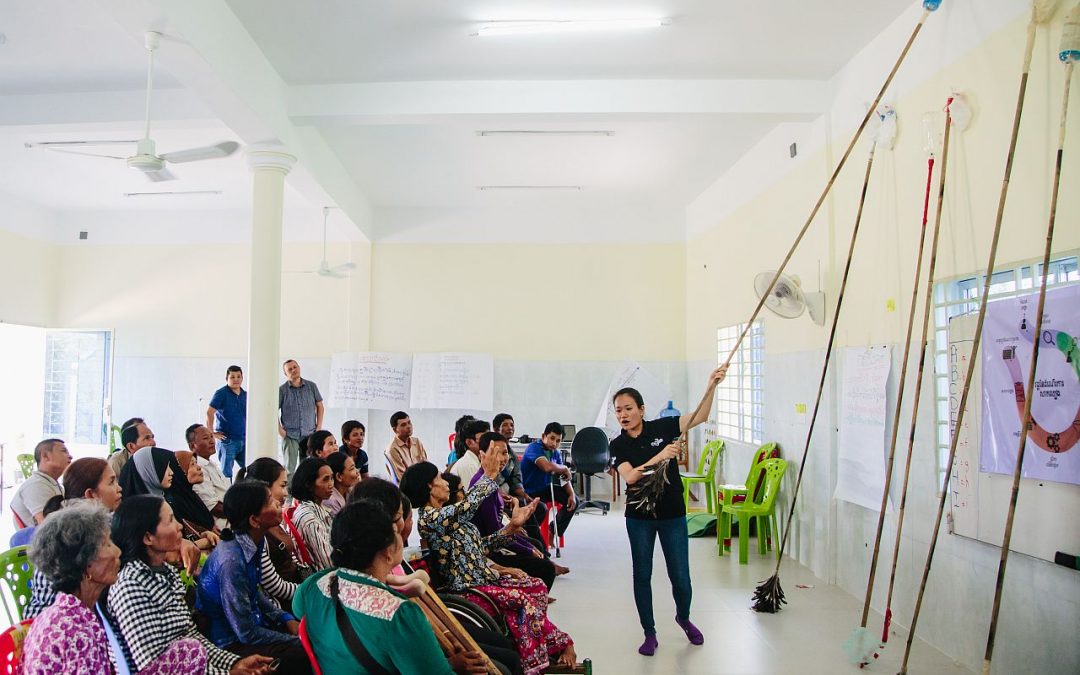Cambodia is home to a large number of people with disability due to landmine injuries, age, congenital conditions, and malnutrition during the Khmer Rouge era. There is a labour shortage in rural areas due to youth moving away from farming in favour of more financially rewarding jobs, which has resulted in elderly community members, with age-related impairments, having to perform labour-intensive tasks later in life. These factors present in rural Cambodia, represent a growing need for assistive technologies that help people with disability to engage in farming practices.
The inclusive agriculture co-design initiative focused on empowerment of participants and utilised the skills and knowledge of the community as well as the project team to design and construct products that would support people with disabilities to partake in agricultural activities and potentially generate an income stream.
In 2017, four co-design workshops were conducted with a community in Kampong Tralach district of Kampong Chhnang province. We aimed to design assistive technologies that helped people with disabilities farm their small plots more easily. In practice, this resulted in the design of two products: a locally manufactured, low-cost rice seeder, and an attachment for an ox-drawn plough that assisted people with mobility limitations when preparing fields.
These products were stored by the community and available for use by anyone who attended the workshops. All interviewees at the conclusion of the project reported that they would be keen to attend similar workshops in the future and an average of 83% of participants reported being “Very Happy” at the end of each workshop. One participant said of the workshops: “It’s helpful in terms of ideas and forces. I am happy and more confident. I am encouraged that if I can make the design possible, other community members would contribute some parts of bikes, tanks and wood.”


